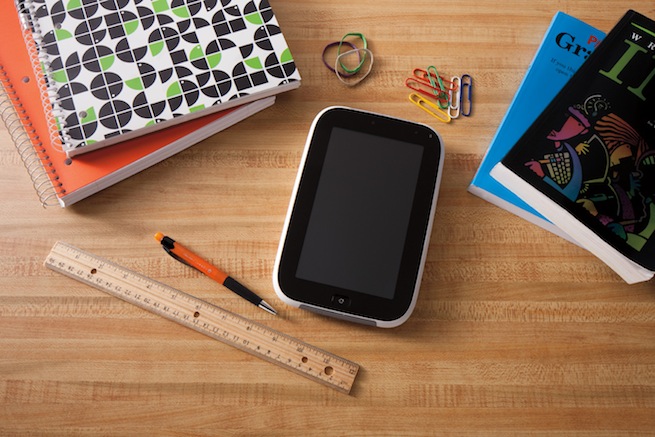Intel announced Studybook today, a design for a cheap tablet intended to target students worldwide.
[aditude-amp id="flyingcarpet" targeting='{"env":"staging","page_type":"article","post_id":414592,"post_type":"story","post_chan":"none","tags":null,"ai":false,"category":"none","all_categories":"mobile,","session":"A"}']Intel wants device vendors around the world to brand and market the devices, tailoring their software to the local market. That is, each tablet should run in that country’s language and have the local nuances that would make students feel at home using the technology. The device is made of rugged plastic, is water and dust proof, and has sports shock absorbers around the screen’s corners.
AI Weekly
The must-read newsletter for AI and Big Data industry written by Khari Johnson, Kyle Wiggers, and Seth Colaner.
Included with VentureBeat Insider and VentureBeat VIP memberships.
In October, India’s government partnered with Canadian developer DataWind to create an extremely cheap Android tablet that, while not exclusively aimed at students, could have a huge impact on tech in the Indian classroom. The tablet, which VentureBeat got a first look at, only costs $35. It is subsidized by the government, and would otherwise cost $60, still very cheap when compared with its Android brethren. While the DataWind tablet is certainly not as fast or smooth as consumer tablets are, it is still powerful and can be tailored with apps to fit a number of needs. Check out a video of that device here.
Apple also has an obvious stake in the educational tablet market. The company recently announced iBooks 2, a set of interactive textbooks that compete with companies like Chegg, Inkling, and Know.
hat tip Wall Street Journal
VentureBeat's mission is to be a digital town square for technical decision-makers to gain knowledge about transformative enterprise technology and transact. Learn More

